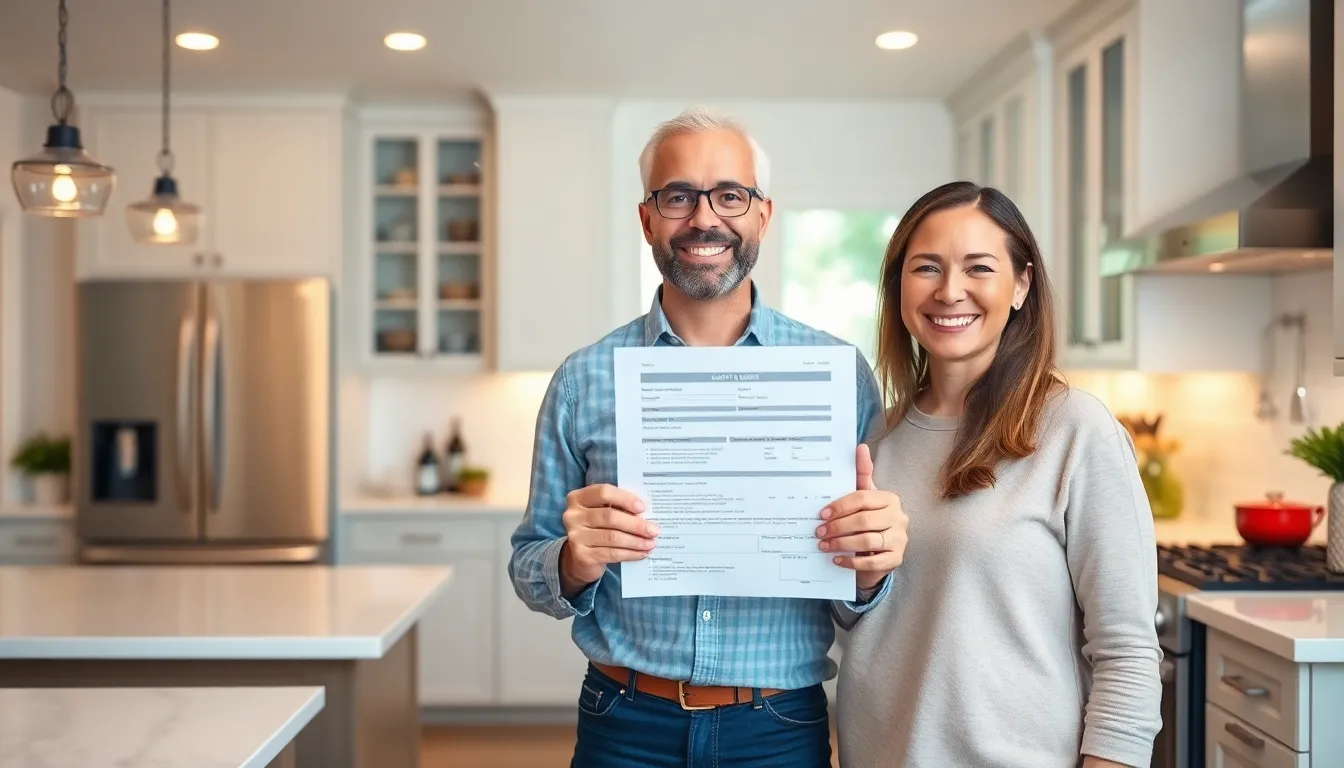Home equity can feel like that hidden stash of cash in your couch cushions—tempting but often overlooked. When homeowners realize their property value has skyrocketed, they suddenly have access to a treasure trove of funds. But when should they dive into that equity pool? It’s not just about wanting a shiny new car or a luxury vacation.
Table of Contents
ToggleUnderstanding Home Equity
Home equity describes the portion of a home’s value that a homeowner truly owns. Homeowners build equity as they pay down their mortgage and as property values increase.
What Is Home Equity?
Home equity represents the difference between a property’s market value and the outstanding mortgage balance. For example, if a home is worth $300,000 and the owner owes $200,000, the home equity amounts to $100,000. This equity acts as an asset, giving homeowners access to funds for various needs. Home equity can be tapped through loans or lines of credit, often at lower interest rates compared to other financing options.
How Is Home Equity Calculated?
Calculating home equity requires knowing the home’s current market value and the remaining mortgage balance. Homeowners can obtain an estimate of their property’s value through online tools or professional appraisals. Subtracting the mortgage balance from the market value yields the equity amount. For instance, if the market value is $350,000 and the outstanding mortgage is $250,000, equity equals $100,000. Understanding how equity fluctuates with market changes helps homeowners make informed financial decisions.
When to Use Home Equity
Home equity serves as a valuable financial resource for homeowners. Properly utilizing this equity can lead to significant benefits.
Home Improvements
Undergoing home improvements ranks as one of the most beneficial uses of home equity. Increasing a property’s value often makes upgrades, such as kitchen or bathroom renovations, worthwhile. Installations of energy-efficient windows or roofs enhance comfort while lowering utility bills. Homeowners typically see an increase in equity equal to or exceeding their investment when they improve their property. Borrowing for these projects often comes with favorable interest rates, making it a smart financial move.
Debt Consolidation
Using home equity for debt consolidation offers a crucial opportunity for homeowners struggling with high-interest debts. Home equity loans or lines of credit provide lower interest rates compared to credit cards and personal loans. This method simplifies monthly payments by consolidating multiple debts into one, reducing financial stress. By focusing on repayment and fixed interest rates, homeowners can lower their overall debt burden, enhancing financial stability over time.
Emergency Expenses
Tapping into home equity can provide relief during unexpected financial emergencies. Sudden medical bills or urgent repairs can strain budgets, making access to funds essential. Home equity lines of credit (HELOCs) allow homeowners to withdraw funds as needed, offering flexibility. Using this equity for emergencies often avoids high-interest loans, making it a prudent choice for covering significant expenses. Prompt access to these funds can ensure peace of mind during challenging times.
Benefits of Using Home Equity
Utilizing home equity offers significant advantages that can enhance financial stability and support investments. Understanding these benefits is crucial for homeowners considering this option.
Lower Interest Rates
Accessing home equity often comes with lower interest rates than credit cards or personal loans. Many homeowners leverage home equity loans or lines of credit as a cost-effective way to borrow. For instance, average rates for home equity loans are typically under 5% compared to rates exceeding 15% for credit card debt. This difference in interest rates translates into substantial savings over time, making it an attractive choice for tackling expenses. Homeowners can maximize their savings while retaining access to funds, using their equity wisely.
Access to Cash
Home equity allows homeowners to tap into cash based on their property value. This access provides flexibility for various financial needs like home improvements, education expenses, or consolidating debt. Homeowners can use a home equity line of credit (HELOC) to withdraw funds as needed, ensuring availability during emergencies. Fast access to cash can alleviate financial stress and fulfill urgent requirements without resorting to high-interest alternatives. Utilizing home equity in this manner promotes better financial management and opens up possibilities for increased investment or personal growth.
Risks of Using Home Equity
Using home equity presents inherent risks that homeowners should understand fully. Engaging with home equity requires careful consideration of potential consequences.
Potential Foreclosure
Using home equity without caution can lead to potential foreclosure. Homeowners must recognize that borrowing against home equity increases their debt obligation. If they fail to repay loans or lines of credit, lenders may initiate foreclosure proceedings. This process involves seizing the property to recover the outstanding loan balance. Lenders typically pursue these actions if mortgage payments or home equity loan payments remain unpaid for an extended period. Maintaining a clear budget and understanding repayment terms helps mitigate this risk.
Market Fluctuations
Market fluctuations can significantly impact home equity. Home values may decline due to economic downturns or changes in the real estate market. Losing home equity occurs when property values dip below the purchase price or outstanding mortgage balance. Such conditions also limit refinancing options and reduce available funds through equity loans. Homeowners benefit from monitoring local market trends to anticipate changes. Staying informed allows for proactive financial planning, which protects against unanticipated losses in home value.
Conclusion
Using home equity can be a powerful financial tool when approached wisely. It offers homeowners access to funds that can enhance their financial situation and support various needs. Whether it’s for home improvements, debt consolidation, or unexpected expenses, leveraging home equity can lead to significant benefits.
However, it’s essential to remain cautious. The risks associated with borrowing against home equity require careful consideration. Homeowners should ensure they have a solid understanding of their financial landscape and the potential impact of market fluctuations. Making informed decisions will help protect their investment and maintain financial stability in the long run.




